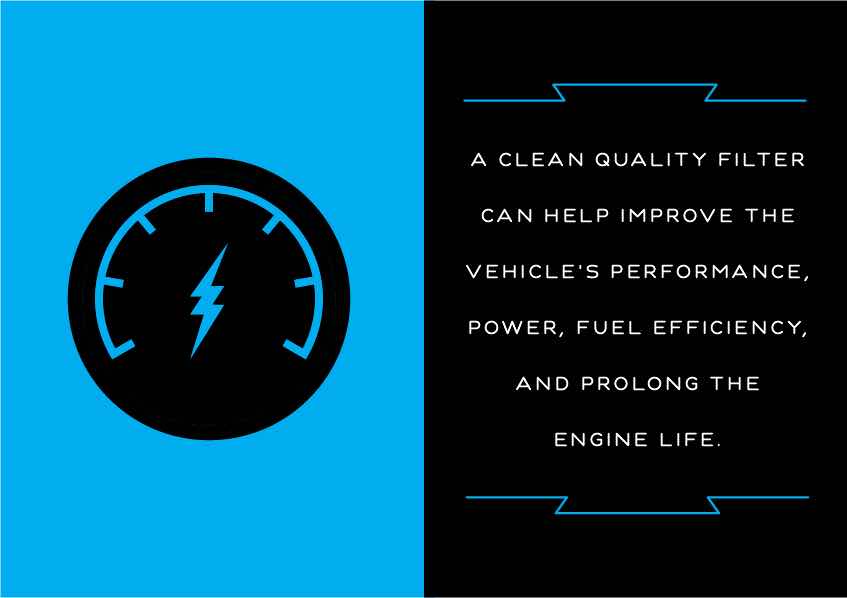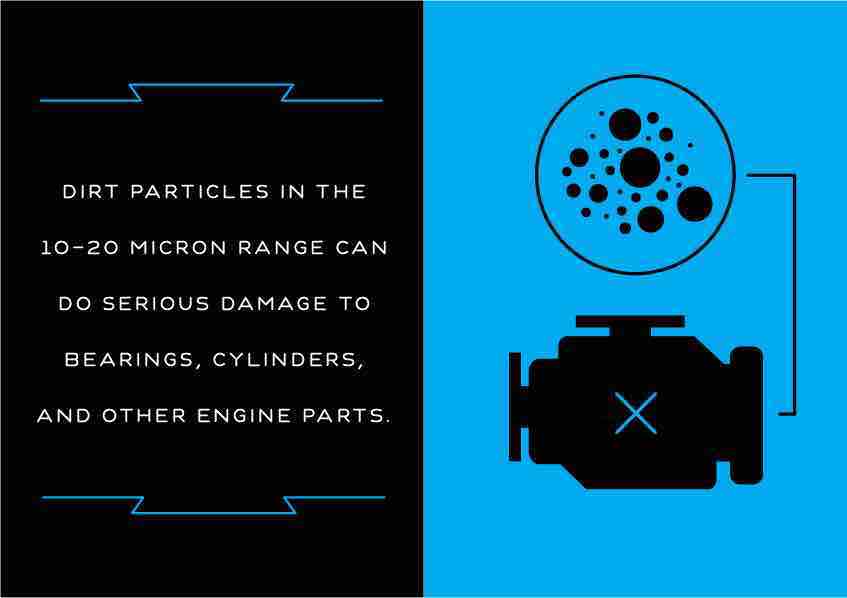
Understanding the different types of auto filters can get complicated, but it’s important to know what each one does to keep vehicles in tip-top shape.
Air Filters

Air filters are necessary to help trap foreign objects and dust particles so clean air can make it to the engine for combustion. The proper mix of air and fuel provides efficient performance in a combustion engine, improving performance, power, fuel efficiency, and potentially prolonging engine life. A clean quality filter can help improve the vehicle's overall performance.
When deciding how often to replace your air filter, one thing to consider is where you typically drive. If you're traveling dirt or gravel roads or often drive in sandy or dusty conditions, your filter will probably need to be changed more frequently than if you drive in cleaner environments.
Oil Filters

The greatest enemy to your engine? It’s actually tiny dirt particles, smaller than the eye can see. Dirt particles in the 10-20 micron range can do serious damage to bearings, cylinders, and other engine parts. This is why effective oil filtration is critical.
Particles less than 10 microns can pass through the space between the shaft and the bearing. Particles between 10 and 20 microns can become lodged between that space and may begin to generate heat, which can cause damage to surfaces. Debris created by engine wear is another culprit that can block the flow of the oil and cause severe damage to the engine and performance of the vehicle.
Oil filters are typically changed every time the oil in a vehicle is changed. Since high mileage vehicles are more prone to engine breakdown, it's even more important to keep up with regular maintenance. Check your owner's manual to find out how often you should change your oil filter and your oil; additionally consider using a motor oil specifically formulated for vehicles with more than 75k miles.
Cabin Air Filters

The cabin air filter’s purpose is very similar to the purpose of a filter for a home AC unit. Dust, dirt, leaves, pollen and other particles can get inside the passenger compartment of a vehicle through the air intake. These particles can potentially irritate allergies and asthma and can cause passengers discomfort. The cabin air filter catches these particles before they come out of the vents. Like air filters, cabin air filters need to be changed more often if you frequently drive through heavily polluted or dusty areas.
Fuel Filters

As the fuel pump supplies gasoline to the engine, the fuel filter catches the impurities from the gas and sediments from the fuel tank to protect the pump and keep the injectors from getting clogged. As the fuel filter catches debris over time, the amount of fuel that can flow gets reduced. This can cause the engine to stall, reduce the overall power, and cause issues starting the vehicle. To extend the life of your fuel filter, make sure to use clean, high-quality fuel.
- Prior to using or installing any of these products always consult your vehicle’s owner’s manual for compatibility and warranty information.
- Valvoline does not guarantee, approve or endorse the content available on linked sites.
- Always take appropriate safety precautions when working on or operating your vehicle. Take the necessary steps to help prevent injuries; always use protective gear like helmets, safety goggles, and gloves.


Don't miss out on new content
Thanks for signing up. Set your password and start earning reward points for everything you do on the site.
You already have a Team Valvoline account. Sign in here.
Did you forget your password?